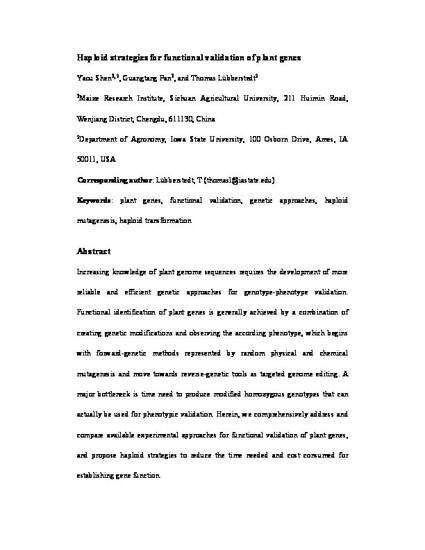
Increasing knowledge of plant genome sequences requires the development of more reliable and efficient genetic approaches for genotype-phenotype validation. Functional identification of plant genes is generally achieved by a combination of creating genetic modifications and observing the according phenotype, which begins with forward-genetic methods represented by random physical and chemical mutagenesis and move towards reverse-genetic tools as targeted genome editing. A major bottleneck is time need to produce modified homozygous genotypes that can actually be used for phenotypic validation. Herein, we comprehensively address and compare available experimental approaches for functional validation of plant genes, and propose haploid strategies to reduce the time needed and cost consumed for establishing gene function.
Available at: http://works.bepress.com/thomas-lubberstedt/70/

This is a manuscript of an article published as Shen, Yaou, Guangtang Pan, and Thomas Lübberstedt. "Haploid strategies for functional validation of plant genes." Trends in biotechnology 33, no. 10 (2015): 611-620. doi: 10.1016/j.tibtech.2015.07.005. Posted with permission.